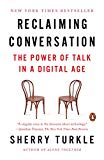Announcing AHEM Networking Forum
AHEM listened and heard the challenges independent family-based homeschooling families face these days. Elists have fizzled, Facebook is an unreliable source for finding out about events, many groups seem splintered or private. Where do you fit in? Is it worth going to the park if you’re not sure anyone else will show up? How can you meet other homeschoolers who live nearby? You are not alone. This is a refrain we have heard a lot in our talks with Massachusetts homeschoolers.
In his book Palaces for the People, Eric Klinenberg points out that, “Building real connections requires a shared physical environment—a social infrastructure.” For many years, social infrastructure for independent family-based homeschoolers meant support group get-togethers like regular park days and library hangouts. This infrastructure is now glaring in its absence, having been replaced by drop-off classes and social media. While social media serves a function, in some ways it has contributed to fracturing the backbone of independent homeschooling: large, active, inclusive support groups.
The kind of free-form, do-it-yourself get-togethers that used to provide the infrastructure for homeschooling families allowed “sustained, recurrent interaction” which is what humans of all ages need in order to forge bonds and grow relationships. Homeschoolers are notoriously independent-minded—we’ve got to be to strike out on what is still a fringe lifestyle choice. That independence can be an added challenge to fostering real world communities that require commitment and “searching for commonalities in those who are different and for humanity in those who disagree with us.” Especially when all we might have in common is that our kid is not in school. But these opportunities for sustained, recurrent interaction are also vital to nurturing a family’s homeschooling lifestyle. Children of course need the opportunity for unstructured social play, but parents also benefit from connection.
At a recent Houghton’s Pond Park Day gathering a group of parents discussed the challenges and rewards that come with nurturing this kind of social infrastructure (among them getting introverts to commit to a regular group activity—challenging--and reaching a comfort level with watching each other’s kids—rewarding!). They noted the importance of building time in on either side of scheduled activities, be they park days, classes, or field trips, so that connection can continue. And one of the parents, Donald, had an insight that dovetails with AHEM’s next big idea: That while for many years support groups were the way that homeschoolers organized themselves, led by volunteers planning regular activities and get-togethers, now “events” create the framework for potential social infrastructure, where various subsets and smaller groups overlap and intersect, either on a one time or recurring basis. It’s more challenging and messier, but the possibility for connection still exists if you prioritize it.
But, it can be hard to prioritize this kind of activity when you don’t know where or when it’s happening. Sherry Turkle’s book Reclaiming Conversation calls for a focus on the people and places in front of us and to use communications technologies to direct us to physical places that everyone can access. In an attempt to harness the power of technology in service of connection, the new AHEM website describes the guidelines for the AHEM Networking Forum and Calendar to facilitate families in different parts of Massachusetts to meet in person repeatedly and get to know each other. To read more about how it works, and to potentially join, go take a look!


